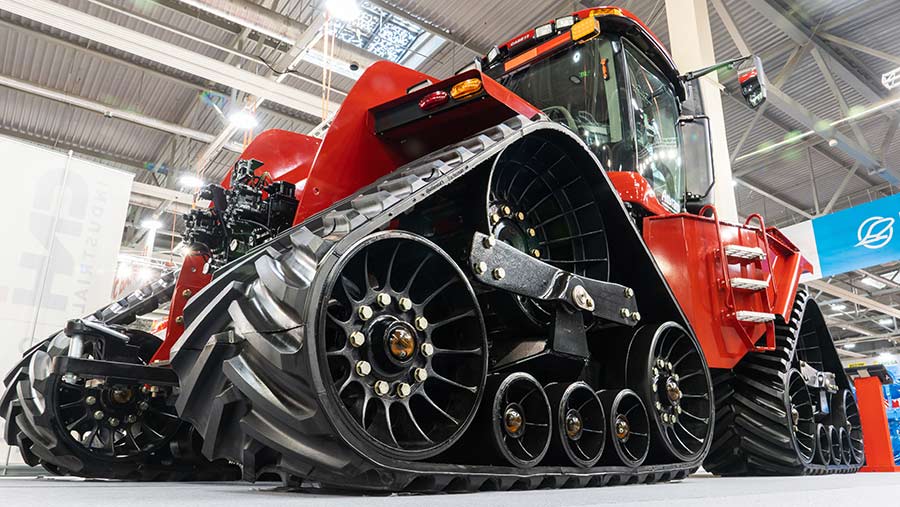Opinion: Maybe I should just buy machinery to distract myself
 Scharfsinn86/Adobe Stock
Scharfsinn86/Adobe Stock Walking the vast halls of the Lamma farm machinery show at the NEC in Birmingham recently, I felt I’d landed in a parallel universe.
No, it wasn’t the many young people wandering the halls sporting a heroic mixture of mullets, rugby shorts, double-popped collars, skin-tight jodhpurs and Le Chameau wellies unzipped to the heel (as I trundled about in my M&S dad jeans and sensible jumper).
Rather, it was the disconnect between the gleaming, gargantuan equipment on show (with price tags varying from the breathtakingly cynical to the almost criminal) and the underlying financial reality of the sector as most of us understand it, three years into the euphemistically named Agricultural Transition Period.
See also: Opinion – climate change is here, don’t believe the deniers
English farms – reliant on direct payments for 60% of their incomes on average – are facing a reduction of 35-55% from 2020 BPS levels, while farm input inflation is running at a combined total of more than 50% in the past two years.
Yet this sense of stark unreality is more widely pervasive. Seventy-eight months on from the vote to leave the EU, almost all detail on the successor policy to CAP is yet to be announced.
Yet another minister from the spinning Rolodex of Defra appointments recently took to a stage with little more to say than a further announcement of future announcements, continuing the Pythonesque approach to rural policy that has been this government’s hallmark since 2016.
Even after large segments of ELM were scrapped in late 2022, straight-faced civil servants were still holding meetings with farmers insisting that nothing had changed, as if we existed in a Kafkaesque alternative reality.
With the pandemic, climate change, blockage of the Suez Canal and war in Ukraine highlighting the importance of domestic food production like a Tom Clancy novel made real, many people with influence at Defra have been focusing their efforts, pushing for the reintroduction of bears, lynx and wolves to any green space outside the M25 and making the cluster-bombing of every river catchment in the UK with beavers a national priority.
No sooner has Defra finally admitted that the badger cull is effective in turning the tide of bovine TB, than the decision has been taken to phase out culling in favour of badger vaccination – the only vaccination programme for which anti-vaxxers actually have the evidence on their side.
For the purposes of food and farming, Northern Ireland is no longer part of the UK thanks to the NI Protocol.
The “world leading” Animal Health and Welfare Pathway assumes livestock farmers have never thought to engage the services of a vet.
The UK internal market is about to be split by four separate agricultural policies, with highly distorting consequences.
We’ve been unequivocally shafted on trade. The budget for Sustainable Farming Incentive is clearly inadequate. We need more migrant labour.
I can’t be the only one to whom this all feels entirely surreal; yet the charade continues almost unremarked.
But perhaps I should stop being so po-faced and just join in: Mr Machinery Dealer: I’ll take one of everything, and a mullet to go. Just chuck it on the tab.

